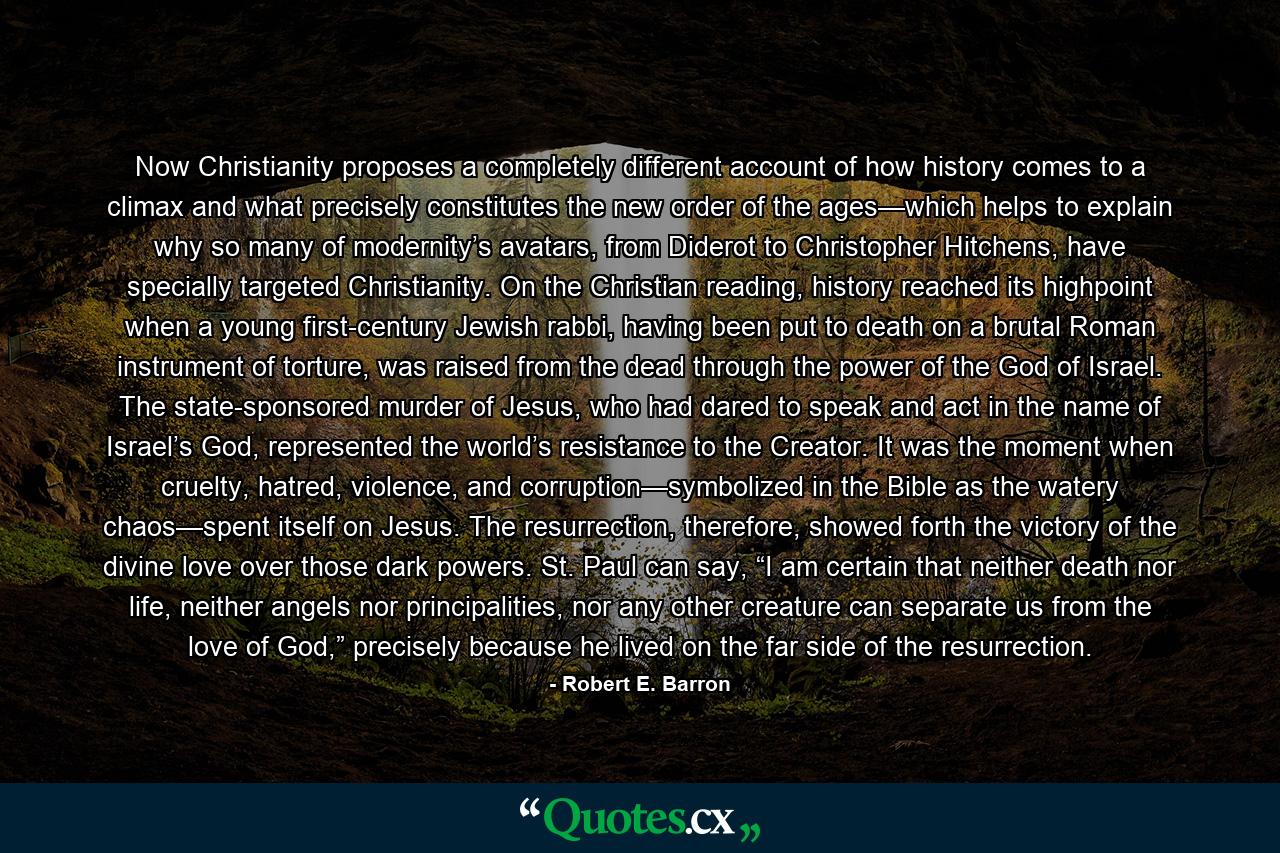Now Christianity proposes a completely different account of how history comes to a climax and what precisely constitutes the new order of the ages—which helps to explain why so many of modernity’s avatars, from Diderot to Christopher Hitchens, have specially targeted Christianity. On the Christian reading, history reached its highpoint when a young first-century Jewish rabbi, having been put to death on a brutal Roman instrument of torture, was raised from the dead through the power of the God of Israel. The state-sponsored murder of Jesus, who had dared to speak and act in the name of Israel’s God, represented the world’s resistance to the Creator. It was the moment when cruelty, hatred, violence, and corruption—symbolized in the Bible as the watery chaos—spent itself on Jesus. The resurrection, therefore, showed forth the victory of the divine love over those dark powers. St. Paul can say, “I am certain that neither death nor life, neither angels nor principalities, nor any other creature can separate us from the love of God,” precisely because he lived on the far side of the resurrection.
